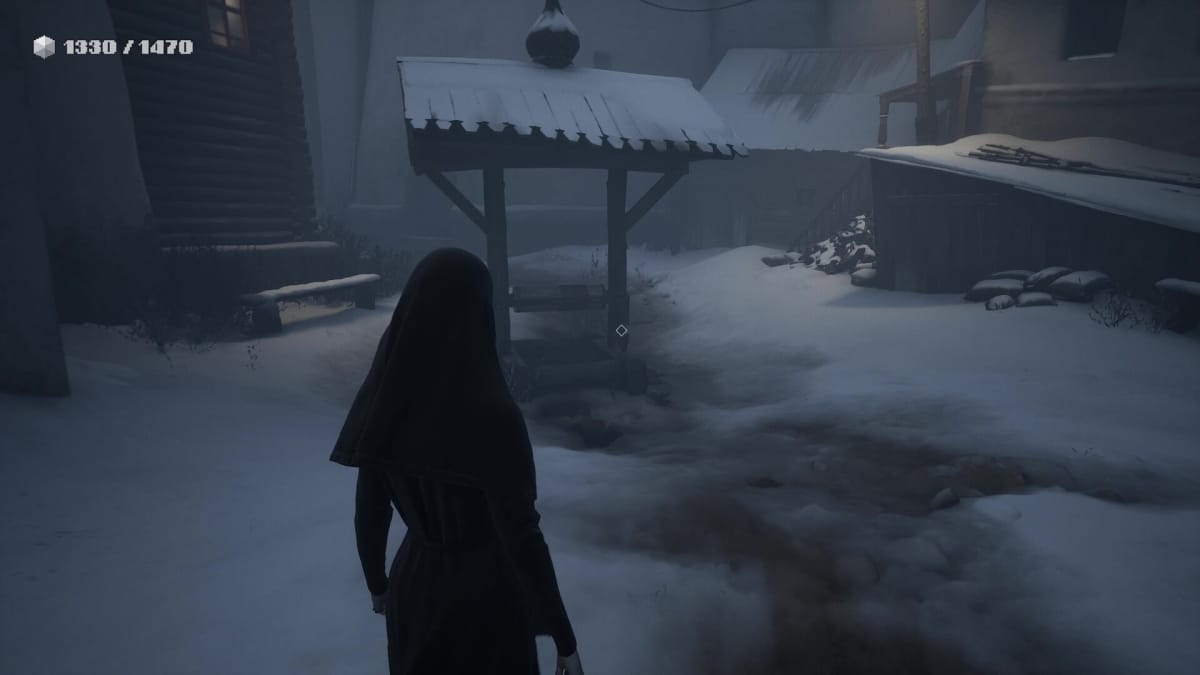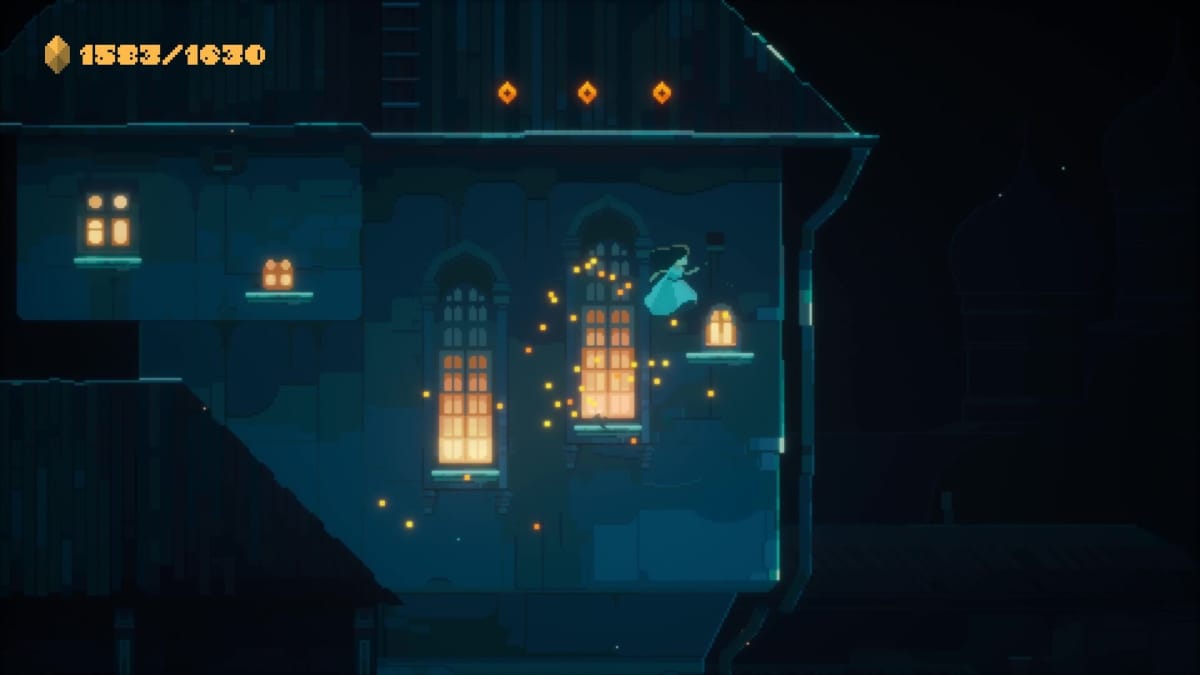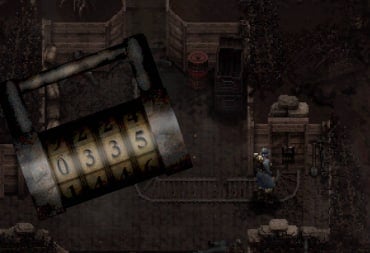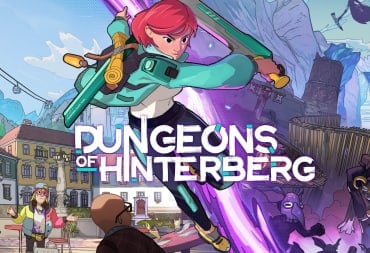There's a moment fairly early on in narrative adventure Indika in which our titular heroine, a nun, is tasked with filling a barrel with water. To do so, she must painstakingly fill a bucket five times, walking slowly between the well and the barrel as she does so.
Just as she completes her task, two other nuns emerge from a nearby room. One knocks over the barrel Indika has just been filling, and she and her companion move along without a second thought for Indika or her efforts. Indika says nothing and goes on her way.
In many ways, this moment is indicative of both Indika's strengths and its flaws. On the one hand, it's hilariously futile, summing up Indika's themes in a single moment of tedium. On the other, it also arguably represents one of the rare moments in which Indika's gameplay, rather than its narrative and world, genuinely feels unique.
Indika Tells a Strange, Literary Story

The narrative of Indika is, appropriately enough given its developer's name, an odd one.
On the surface, it's about a nun who must sally forth from her convent to deliver a letter. Developer Odd Meter has cited Russian authors Dostoevsky, Gogol, and Bulgakov as inspirations, and like the works of those authors, Indika's story is essentially a framing device for some weighty philosophical questions.
Do human beings truly have free will? Is there such a thing as good and evil? How far can faith get you in an absurd world? Indika grapples with all of these questions and more, using its titular character, as well as her soldier companion Ilya, to examine a range of different responses.
Throughout the story, Indika also talks to the Devil in her head, who's constantly trying to tempt her away from the moral absolutism that would make the world easy to navigate. It's essentially the old angel-and-devil-on-the-shoulder trope, but without the angel.
It all sounds pretty heavy on paper, and it's true that Indika is not for you if you're in the mood for simple, breezy storytelling with clear, unambiguous morals. However, that's not to say there's no levity.
At times, Indika leans heavily on absurdity to get its point across. There's a moment early on in which a strange baby-man emerges from a nun's mouth and she winks while bombastic music plays, and only Indika seems to see it, for instance.
Indika's comedy never comes across as incongruous or ill-judged, though. The works of the aforementioned Russian authors were often comically absurd, albeit in a beaten-down, cynical kind of way, and Indika mirrors those works with aplomb.
Saying this might be akin to blasphemy for some, but Indika genuinely made me feel like I was reading a story by Dostoevsky or Bulgakov. Its downbeat, monochrome storytelling, occasionally injected with a healthy dose of bizarre magic, kept me captivated throughout its short length.
Gameplay in Indika Feels Too Rote

Given how openly strange Indika's story can be, I hoped that its gameplay would measure up, but for the most part, Indika is a somewhat disappointingly straightforward affair.
If you can imagine gameplay that lands somewhere between Alice: Madness Returns, Hellblade: Senua's Sacrifice, and A Plague Tale: Innocence, then you've essentially arrived at the crossroads where Indika dwells.
For the most part, Indika occupies well-trodden puzzle-adventure territory. You'll be spending most of your time walking through its snow-covered streets and industrial landscapes.
Occasionally, you'll solve a puzzle that might involve pushing blocks, operating machinery, or moving bridges or platforms around so that you can proceed. There's very little interactivity in Indika's world; platforms on which you can climb are clearly delineated, as are puzzle elements.
Once or twice, Indika threatened to become more interesting on the gameplay front, like the moment when Indika and Ilya are chased by a monstrous dog, or the absurd sequence in which they must dodge rotating racks of fish in an abandoned cannery.
Unfortunately, though, these moments felt more frustrating than galvanizing for me. Indika doesn't really feel like it's set up for reflex challenges, so in these moments, I found its clunky controls annoying.
I often found myself wishing I could just get back to walking or solving one of Indika's slightly irritating puzzles so I could listen to more conversations between Indika and Ilya.
Indika Has Some Jarring Surprises Up Its Sleeve

Although the moment-to-moment gameplay of Indika isn't particularly thrilling, it does feature some genuinely interesting gameplay elements that could arguably have been used to greater effect.
There's a skill tree, for instance, but it does absolutely nothing. Amusingly and cleverly, Indika tells you flat-out that the points you're earning don't do anything and that the skill tree is meaningless.
I interpreted this as a representation of Indika's surface-level engagement with her faith; by earning points in stats like "grief" and "repentance", one can surely become a better Christian, and it's as easy as leveling up on a skill tree.
The narrative plays with this skill tree in satisfying and fun ways throughout, including during the jarringly (and deliberately, I'm sure) abrupt conclusion.
Indika also features retro pixel-art minigames, which feel out of place, and not necessarily in a good way. They represent pivotal moments in Indika's past, moments that led to her joining the convent to which she seems reluctant to belong.
Perhaps I'm too poorly-read to figure out the true purpose of these minigames, but they felt uninspired and unnecessary.
Retro pixel art depicting the past feels a touch obvious, and the games themselves aren't up to much either; they're bog-standard arcade-style experiences, never offensive but never engaging.
Indika Review | Final Thoughts

In the description on its Steam page, Indika declares that it is "an open challenge to the industry's established approach to creating video games". I think that's a tad self-congratulatory given the finished product.
Indika has a very compelling story that hits all the right beats, challenging notions of cosmological dualism, free will, and perhaps even mental health, all while avoiding coming across as preachy, condescending, or dull.
Gameplay-wise, however, this is a far more conventional affair. It's enjoyable enough, but Indika's Russian-absurdist take on gameplay that games like A Plague Tale: Requiem have already worn into the ground feels too normal to be as transformative or subversive as it thinks it is.
Indika was reviewed on PC with a copy provided by the publisher over the course of roughly 4 hours of gameplay - all screenshots were taken during the process of review.
Review Summary
Pros
- Compelling, literary story
- Absurdist humour works well
- Some intriguing gameplay ideas
Cons
- Rote, mundane puzzles
- Pixel art minigames feel out of place
- Might be too weird for some
Have a tip, or want to point out something we missed? Leave a Comment or e-mail us at tips@techraptor.net












